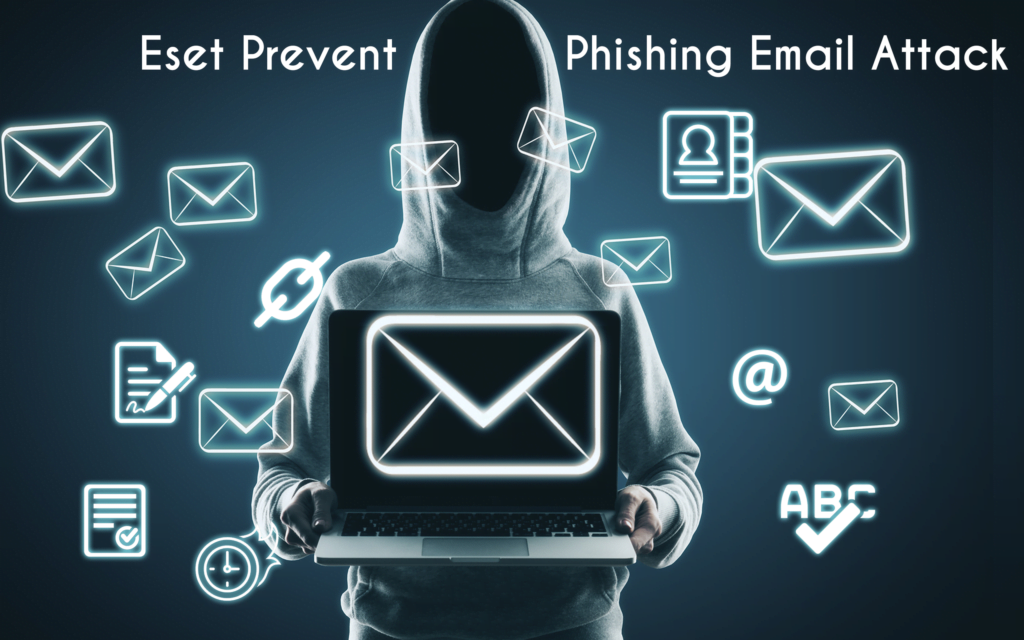Companies use emails, phone numbers, and social media for marketing their products/services and communicate with their audience.
Online shopping, as we all know, is a constant fashion. Brands provide discounts through emails redirecting them to their genuine sites.
In the mix of all this, some cybercriminals create a clone of mega brands and portray themselves as real ones.
They shoot emails and ask users to click on unsolicited links containing malware and spyware.
Before we tell you how you can identify phishing emails, you must understand what it is and why hackers use them to hack your system.
What is a phishing email?
Phishing emails are unsolicited and unauthentic emails sent by hackers to get a hold of sensitive data such as credit/debit card information, usernames, and passwords, etc.
Hackers impersonate themselves as real brands and shoot emails containing false information inducing users to click on the CTA buttons.
Why do cybercriminals use emails to hack into your system?
Unlike your website, which might be protected by a firewall, your email is unprotected, and just about anybody with your email address can shoot an email to you.
This encourages hackers to use emails as a medium to hack into your systems by inviting you to click their malware links.
How to recognize phishing emails?
- Legit company email matches its links
Genuine companies have an email procedure—their email URLs and the links they redirect you to match each other.
You will never find a disintegration between the two. However, if you want to check, look at the email URL and then hover your cursor over the link they want you to click on. Make sure that both have a similar company name without any compromises.
- Trustworthy company URL are SSL secure.
An SSL certificate justifies the credibility of a site. It creates a secure pathway for information to transmit and does not allow hackers to decrypt the data.
An SSL in the shared link states that the email is from a natural source and that your information is completely secured.
SSL adds HTTPS:// in front of a website, which means that the link you are about to click is secure.
Just by hovering over the link, you will know whether the link has “s” after “http,” which states its credibility.
- Genuine emails are organized.
A company’s email team professionally structures genuine emails. They will not just casually send you an email asking you to click on a link.
Authentic companies value their brand image and will not do anything that might make them feel ashamed.
However, if an email is unstructured and desperately asks you to click on the link, they are not genuine.
Even in sales pitches, companies follow a structured format to invite you to click.
Some emails are entirely hyperlinking, which means that you will be redirected to a malicious website no matter where you click.
So, avoid click even in empty email spaces as you never know whether the email is entirely hyperlinked or not.
- Genuine companies pay enormous attention to grammar in their email.
Genuine companies employ professionals just for writing robust emails with no mistakes of any kind.
Before an email is sent, it goes through various proofreads and grammar checks to ensure that it is entirely correct.
Brands know that their value and image is based on their emails and posts. They cannot afford to be incorrect.
However, a hacker will not necessarily pay attention to all the fine detailing. He does not care about the image and format of the email. All he is concerned about is your click.
- Legit companies can buy their domain emails.
A company does everything professionally. They invest in an SSL certificate, a firewall, cloud servers and domain emails, etc.
Unlike a hacker who would erase all information about himself after hacking a site, companies do not set up their structure to erase their data anytime.
They take strategic steps to ensure that they look professional, so their domain emails always consist of the sender’s and company’s name.
There are no numbers present in the email. If you come across emails like “abc123@company.com,” it is probably fake.
- Genuine companies do not use generic salutations.
Companies generally call you by your name. They do not call you “Dear user” (unless, of course, if it is a transaction message from your bank).
They use precise terms like “Hi Bob” and “Hi Celeste,” etc., to start a connection with you on a personal level.
But hackers do not operate like that. Most hackers do not think about salutations and shoot cold emails.
Largely users ignore salutations and read the email, but you must pay attention to how you are called in an email if you want to stay away from hackers.
- Genuine companies do not ask for your credit card details by email.
Users have become skeptical about their credentials, such as credit/debit card details, bank information, passwords, etc.
The corporates have realized this, which is why they do not ask you to enter your password or any other detail in an email attachment.
Instead, they would redirect you to a safe and legit website where you can enter your email address and password to avail of the offer.
Emails are not the place for exchanging confidential information, and genuine companies’ value that.
To Conclude
No firewall will protect you against phishing emails. Only your awareness and attention can help you identify fraudulent ones.
The tips mentioned above will play a significant role in helping you identify whether an email is authentic or not.
So, avoid clicking on unsolicited emails until you know all these seven points.
